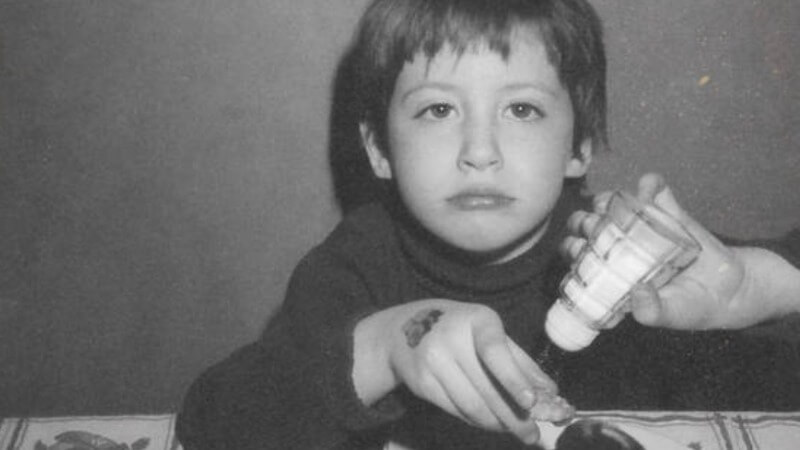Frankie Cosmos Delivers More of the Same on Different Talking
Greta Kline’s sixth record as Frankie Cosmos is another solid if slightly monotonous showcase of her brisk, pleasant brand of indie-pop, only occasionally doling out flashes of wit and unexpected stylistic flourishes.

In 2014, Greta Kline, the singer-songwriter behind the moniker Frankie Cosmos, emerged as a new voice to be reckoned with with her small but impactful debut Zentropy. That record stood out for a myriad of reasons: the economical runtime (no track runs over 2.5 minutes), the gentle yet exacting DIY sound design, and Kline’s soft, fluttery vocals, which could transform mundane personal anecdotes and straightforward observations into quietly devastating poetry. For a brief, fleeting moment, Zentropy made twee cool again, evoking the oft-maligned aesthetic that populated much of the indie-pop/rock sphere in the mid-to-late-2000s but infusing it with a twist of millennial malaise.
Since then, Kline has continued to refine her no-frills sonic template with minor adjustments. Her most accomplished work remains 2016’s Next Thing, which effortlessly streamlined Kline’s intimate songwriting and nimble production style into a simple yet striking record that clocks in at just under 30 minutes. Frankie Cosmos has also morphed from just a stage name for Kline into a four-piece band that includes guitarist Alex Bailey, keyboardist Katie Von Schleicher, and drummer Hugo Stanley. That Kline has maintained a consistent and disciplined sound after expanding her project is commendable, but Different Talking, her sixth and latest LP, is more or less the same as what she’s been making up to this point: brisk, accessible, slickly produced indie-pop that subtly flirts with ambitious stylistic flourishes, but mostly settles for a modest, somewhat monotonous execution.
This isn’t to say Different Talking doesn’t have a meaningful, intriguing thematic throughline. Kline has always been good at applying a light yet controlled touch to weighty themes, and the ones that animate Different Talking—the recollection of painful memories and gaining a new perspective on them as an adult—are sometimes put to good use. “One! Grey! Hair!” comes closest to capturing the album’s ideas successfully, with the punctuation marks in its title drolly lamenting Kline’s anxieties about getting older. On the song, Kline states with sharp specificity the paradox of the passage of time (“Time is both frozen and moving faster than we can see”) before a delightful key glide, one of Different Talking’s most charmingly disarming moments, pulls everything back to the present. The moving “You Become,” a dreamy ditty bathed in lovely synths, shows Kline radically accepting the dissolution of her past relationships: “How could you ever stop being friends? / That you would never stop loving them / But I guess / That rule doesn’t apply to me.” And Kline’s emphasis on certain words, like the way she draws out “meeee,” works to great effect, adding a sweet little cherry on top of the song’s poignant, succinct depiction of the fickle nature of friendship.
-

-

-

-

-

-

-

-

-

-

-

-

-

-

-

-

-

-

-

-

-

-

-

-

-

-

-

-

-

-

-

-

-

-

-

-

-

-

-

-








































